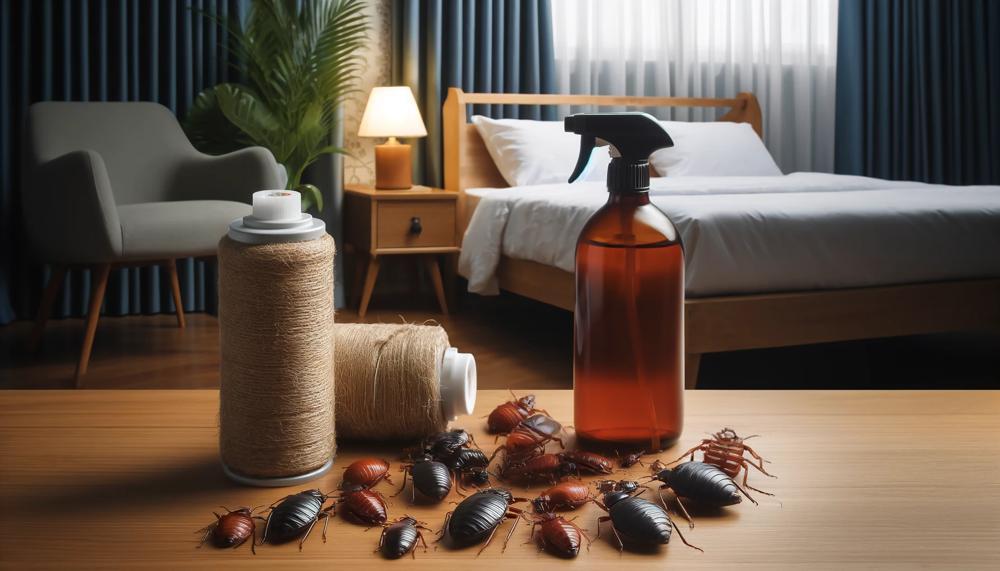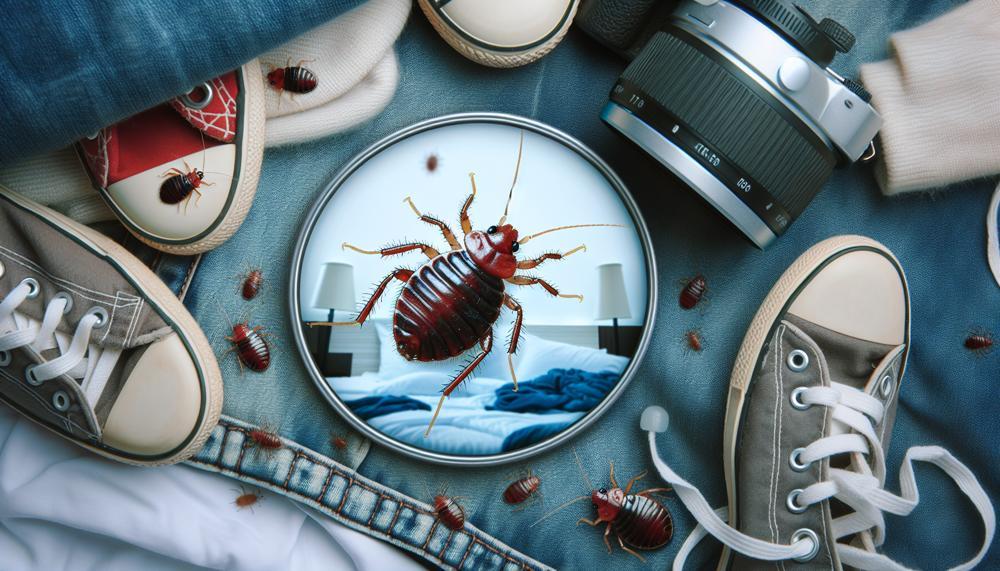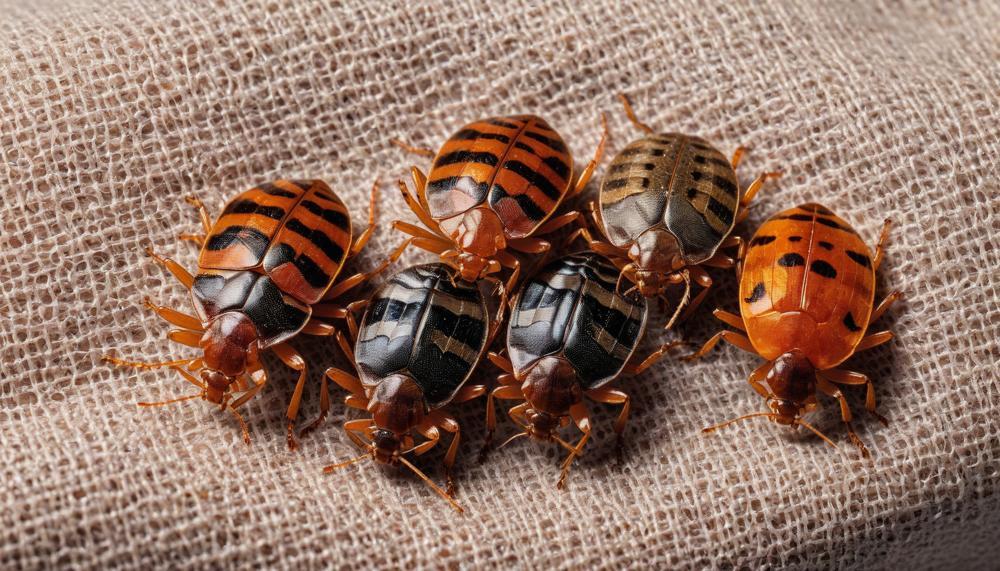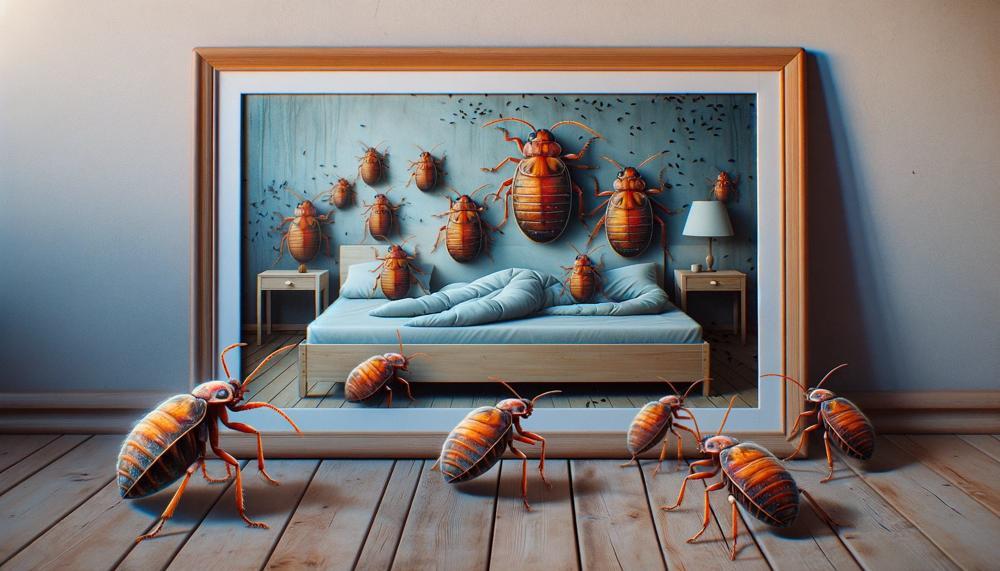In the realm of uninvited guests, bed bugs reign supreme, leaving their mark in the form of itchy, red bites that can disrupt your slumber and peace of mind. If you’ve ever fallen victim to these nocturnal bloodsuckers, you know the importance of taking proactive measures to keep them at bay.
In this comprehensive guide, we’ll delve into the world of bed bug prevention, arming you with effective strategies to repel these pesky critters and reclaim your restful nights.
Bed bug bites are not just an annoyance; they can also lead to allergic reactions, skin infections, and psychological distress. Preventing bed bug infestations is crucial for safeguarding your health and well-being. By implementing simple yet effective measures, you can create a bed bug-free environment and enjoy a peaceful slumber once again.
So, how to repel bed bugs from biting you?
Here are some strategies to repel bed bugs and prevent them from biting you:
- Sleep Under Layers of Sheets and Comforters: Bed bugs can’t bite through plastics, fabrics, or anything else.
- Regularly Wash Your Sheets and Pillows: Washing your bedding regularly can lessen the number of bites.
- Wear Pajamas: This can provide an additional layer of protection.
- Vacuum Mattress Regularly: This can help remove any bed bugs that may be present.
- Use Mattress or Box Spring Encasements: These can prevent bed bugs from reaching you.
- Avoid Sleeping on the Sofa: Bed bugs can easily infest sofas.
- Use Protective Covers: Consider getting a mattress cover that has been pretreated with pesticide. A plain, light-colored mattress cover can make it easier to spot bed bugs.
- Use Substances and Sprays That Bed Bugs Don’t Like: You can deter and repel them by using substances and sprays that they don’t like.
- Kill Them with Heat: This is considered the best way of stopping them from biting.
Remember, bed bugs are attracted by carbon dioxide and heat that humans and other animals naturally emit. Therefore, these strategies aim to create a barrier between you and the bed bugs or make your sleeping area less attractive to them.
If you suspect an infestation, it’s recommended to seek professional help as bed bugs can be difficult to eliminate completely. Please note that these methods are preventative and may not be effective in the case of a severe infestation.
Ready to delve deeper into the world of bed bug prevention? Continue reading to discover additional tips and tricks for keeping these unwanted visitors at bay and ensuring a peaceful night’s sleep.
Table of Contents
- 1 Creating a Bed Bug-Proof Environment
- 2 Utilizing Natural Repellents to Deter Bed Bugs
- 3 Implementing Physical Barriers to Prevent Bed Bugs Bites
- 4 Maintaining a Clean and Clutter-Free Space
- 5 Employing Chemical Treatments for Effective Repulsion
- 6 Seeking Professional Assistance for Comprehensive Pest Control
- 7 Conclusion
Creating a Bed Bug-Proof Environment
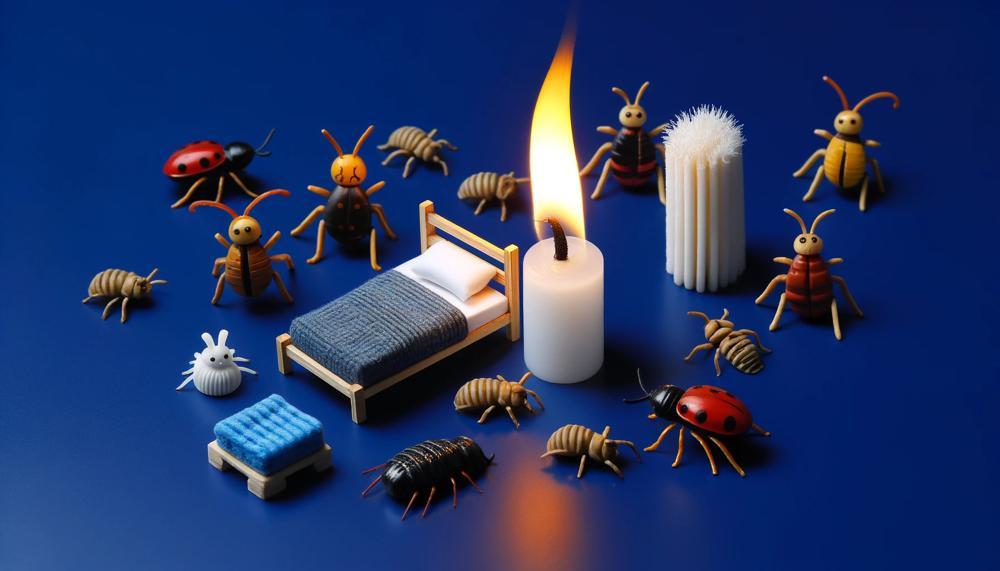
| Sealing Method | Steps | Effectiveness |
|---|---|---|
| Caulk |
|
Caulk is a highly effective way to seal cracks and crevices, preventing bed bugs from entering. |
| Weatherstripping |
|
Weatherstripping is a good option for sealing larger cracks and crevices, such as those around doors and windows. It is also effective in preventing drafts and noise. |
| Steel wool |
|
Steel wool is a good option for sealing small cracks and crevices, such as those around pipes and wires. It is also effective in deterring bed bugs from entering. |
| Expanding foam |
|
Expanding foam is a good option for sealing large cracks and crevices, such as those around foundations and walls. It is also effective in preventing moisture and drafts. |
Utilizing Natural Repellents to Deter Bed Bugs
Here are some natural repellents that can help deter bed bugs:
- Essential Oils: Essential oils like tea tree oil and lavender oil can repel bed bugs. You can make a natural bed bug spray by adding 10-15 drops of lavender essential oil and 10-15 drops of peppermint oil to a spray bottle filled with water. Use this natural spray to treat areas infested with bed bugs.
- Baking Soda: Baking soda is a natural bed bug deterrent that also kills any bed bugs in the area.
- Rubbing Alcohol: Pour rubbing alcohol into a spray bottle and spritz away. The alcohol will kill bugs on contact.
- Scented Dryer Sheets: The smell from the dryer sheets can repel the insects and even encourage them to seek out other spots to inhabit.
Remember, these methods are preventative and may not be effective in the case of a severe infestation. If you suspect an infestation, it’s recommended to seek professional help as bed bugs can be difficult to eliminate completely.
Implementing Physical Barriers to Prevent Bed Bugs Bites
Here are some physical barriers that can help prevent bed bug bites:
- Mattress and Box Spring Encasements: Install encasements on your mattress and box spring. These encasements can trap bed bugs inside and prevent them from reaching you.
- Bed Bug Interceptors: Install bed bug interceptors under bed and furniture legs1. These devices trap bed bugs as they climb up towards the bed.
- Isolate Your Bed: Make your bed an island. Keep your bed away from the wall and do not let bedding touch the floor. This can prevent bed bugs from climbing onto the bed from the walls or floor.
- Remove Clutter: Bed bugs can hide in clutter near your bed. Removing clutter can reduce their hiding places.
- Isolate Infested Items: If you have items that are infested with bed bugs, isolate them in sealed plastic bags or containers. This can prevent the bugs from spreading to other areas.
- Clothing Barriers: Different materials offer varying levels of protection. Denser materials like denim can serve as better barriers. However, garments with a loose weave, such as linen, may not prevent bites. Stretches in fabric can create openings for bed bugs to bite through.
Remember, these methods are preventative and may not be effective in the case of a severe infestation. If you suspect an infestation, it’s recommended to seek professional help as bed bugs can be difficult to eliminate completely.
Maintaining a Clean and Clutter-Free Space
| Tip | Action | Reason |
|---|---|---|
| Declutter Regularly | Remove unnecessary items, such as clothes, books, and papers, from your bedroom. | Clutter provides hiding places for bed bugs and makes it harder to clean. |
| Vacuum Thoroughly | Vacuum your bedroom at least once a week, paying special attention to the areas under the bed, around the baseboards, and in the corners. | Vacuuming removes bed bug eggs and nymphs, which can be difficult to see with the naked eye. |
| Wash Bedding Frequently | Wash your sheets, pillowcases, and blankets in hot water (at least 120 degrees Fahrenheit) once a week. | Hot water kills bed bugs and their eggs. |
| Inspect Bedding and Furniture | Regularly inspect your mattress, box spring, and other furniture for signs of bed bugs, such as blood stains, eggs, or live bugs. | Early detection and treatment can help prevent a bed bug infestation from spreading. |
| Seal Cracks and Crevices | Seal cracks and crevices in your bedroom walls, baseboards, and furniture with caulk or sealant. | Sealing these areas can help prevent bed bugs from entering your bedroom. |
| Reduce Clutter | Keep your bedroom free of clutter, such as clothes, shoes, and papers. | Clutter provides hiding places for bed bugs and makes it harder to clean your bedroom. |
| Avoid Eating in Bed | Avoid eating or drinking in your bedroom, as food crumbs and spills can attract bed bugs. | Food and crumbs can attract bed bugs and make your bedroom more appealing to them. |
Employing Chemical Treatments for Effective Repulsion
| Precaution | Reason |
|---|---|
| Read and follow the label instructions carefully. | To ensure safe and effective use of the product. |
| Wear protective clothing, including gloves, long sleeves, and pants. | To prevent skin contact with the chemicals. |
| Ventilate the area well during and after application. | To prevent the build-up of harmful fumes. |
| Do not apply the chemicals to surfaces where food is prepared or eaten. | To prevent contamination of food. |
| Keep the chemicals out of reach of children and pets. | To prevent accidental ingestion or exposure. |
| Dispose of empty containers and unused chemicals properly. | To prevent environmental contamination. |
Seeking Professional Assistance for Comprehensive Pest Control
| Advantage | Benefit |
|---|---|
| Expertise and Experience | Professional pest control companies employ trained technicians with extensive knowledge and experience in bed bug biology, behavior and control methods, ensuring effective and efficient treatment. |
| Targeted Treatment | Professionals conduct thorough inspections to identify the extent of the infestation and target treatment accordingly, minimizing the use of pesticides and reducing the risk of re-infestation. |
| Safety and Compliance | Professional pest control companies adhere to strict safety regulations and use EPA-approved pesticides, ensuring the safety of your family, pets and the environment. |
| Convenience | Hiring a professional eliminates the need for DIY treatments, saving you time, effort and stress, and allowing you to focus on other priorities. |
| Peace of Mind | Professional pest control companies offer warranties and guarantees, providing peace of mind and ensuring that the infestation is resolved effectively. |
Conclusion
In the battle against bed bugs, knowledge is your ultimate weapon. By implementing regular inspections, encasing your mattress, decluttering your bedroom, and diligently laundering your bedding, you create an impenetrable fortress against these pesky invaders. Vacuuming thoroughly, armed with the power of heat, eliminates any stragglers, while sealing cracks and crevices with caulk or weatherstripping ensures they have no way in.
Nature’s arsenal also holds potent repellents. Diatomaceous earth, a microscopic powder, desiccates bed bugs, while tea tree, lavender, peppermint, and garlic oils repel them with their pungent scents. Physical barriers, such as bed bug-proof covers, interceptors, and double-sided tape, create an uncrossable moat, preventing them from reaching your slumbering form.
Cleanliness is the cornerstone of bed bug prevention. Declutter your bedroom, vacuum regularly, and wash bedding frequently in scalding water to deny them harborage and sustenance. Inspect your bedding and furniture vigilantly for signs of infestation, and seal any cracks or crevices that could serve as entry points.
If the battle rages on, enlist the aid of professional pest control. Their expertise, targeted treatments, safety measures, convenience, and peace of mind guarantee a decisive victory in the war against these nocturnal marauders. Remember, a proactive and vigilant approach is your most potent defense against bed bug bites, ensuring a peaceful slumber, free from their unwelcome advances.

